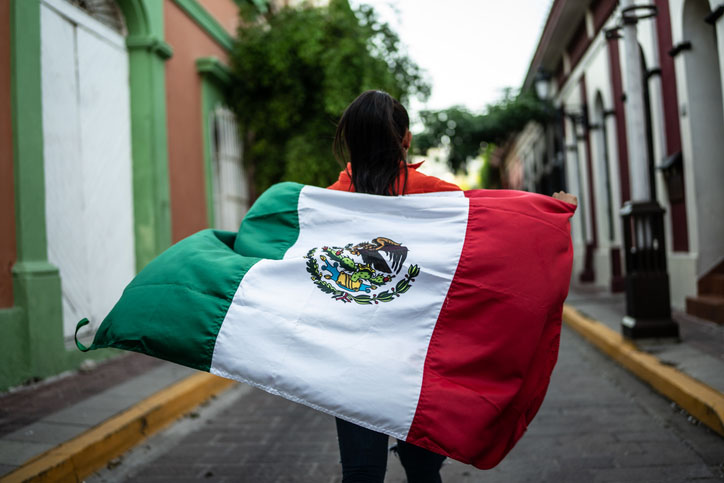
Did you see that new movie about tens of millions of U.S. citizens crowding the border with Mexico desperate to get out of America?
No, because it doesn’t exist.
But it does suggest an interesting thought experiment: What does it say about a country when so many of its citizens are desperate to flee? Indeed, it seems that the biggest story coming out of Latin America in recent years has been the caravans of millions of migrants headed for the U.S. border.
Don’t these leaders have any pride?
Well, according to a new report in The New York Times, it looks like Mexico at least has taken that question to heart. It has turned the tables on President Donald Trump by welcoming its people back home.
Reacting to Trump’s aggressive plans to deport undocumented migrants, our southern neighbor has launched a new program called “Mexico Embraces You.”
“Plans are underway to build nine reception centers along the border — massive tents set up in parking lots, stadiums and warehouses — with mobile kitchens operated by the armed forces,” according to The Times.
The report adds: “Nearly every branch of government — 34 federal agencies and 16 state governments — is expected to participate in one way or another: busing people to their hometowns, organizing logistics, providing medical attention, enrolling the recently returned in social welfare programs like pensions and paid apprenticeships, along with handing out cash cards worth about $100 each.”
The plan also includes negotiating agreements with Mexican companies to link people to jobs.
“We are ready to receive you on this side of the border,” Mexico’s interior minister, Rosa Icela Rodríguez, said at a news conference this week. “Repatriation is an opportunity to return home and be reunited with family.”
It’s too early to say, of course, how well this new program will work and whether it can be sustainable.
It’s also important not to be overly judgmental on the immigration issue. Our nation was founded on immigrants and on everything they have contributed to our society. Today’s Americans are the descendants of yesterday’s immigrants.
The crisis today is different, rooted in a quasi-open border policy that made a mockery of the law and led to massive waves of illegal immigration. This is why two thirds of the country—including Democrats, Republicans and many Latinos as well—supports a tougher border policy, especially when it comes to dealing with criminals.
But U.S. policy has to do with U.S. obligations. We can agree or disagree on those policies.
The obligations of the countries where the migrants come from are a whole other matter.
Traditionally, when we see caravans of migrants desperate to reach our borders, we have a tendency to see only our own obligations– our need for compassion, for a welcoming spirit, indeed our need for immigrants.
But that is only half the story.
Mexico’s program to welcome back its citizens suggests that the other half of the story can be more aspirational. Instead of assuming and accepting that citizens must leave your country to have a better life, why not offer them hope in their own home so they don’t have to leave in the first place?
I got a taste of that idea a few years ago when I went on a humanitarian mission to Guatemala with the Israeli NGO IsraAID. At the time, the country was still traumatized by a 2018 volcano that was the worst it had seen in 45 years.
What caught my attention was that the NGO didn’t just come to help with emergencies. It stuck around. Its volunteers moved into villages and worked for up to a year with the locals to improve their daily lives.
“We see plenty of ‘hit and run’ type of humanitarian work, when activists fly into disaster areas, provide emergency aid, and then move on,” I wrote in a column about the trip. “IsraAid provides emergency aid but does a lot more than that, so their teams tend to stick around. They bring Israeli know-how, from technology to trauma therapy, to people who need it on a daily basis. They also bring plain old human compassion.”
How does this relate to our immigration crisis and Mexico’s new approach? It brings up a new, common-sense paradigm— the better you can improve people’s lives in their own home, the less they’ll feel life fleeing to another country. And yes, that includes dealing with your own criminal element.
Who knows, if one day some Americans feel like moving to Mexico in search of a better life, maybe they’ll turn that into a movie where Mexico will proudly embrace them.






















 More news and opinions than at a Shabbat dinner, right in your inbox.
More news and opinions than at a Shabbat dinner, right in your inbox.